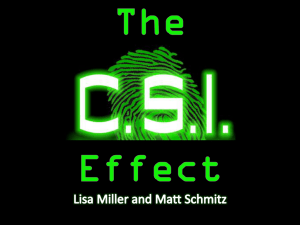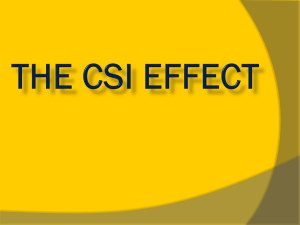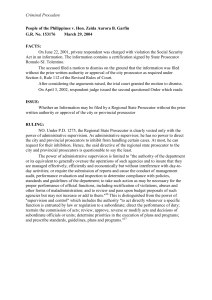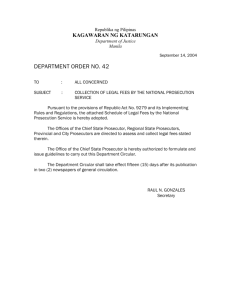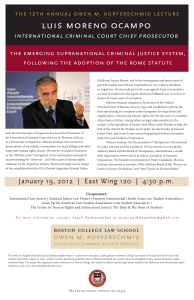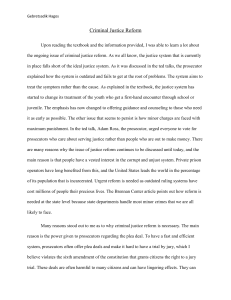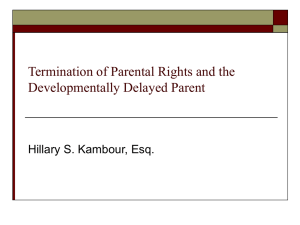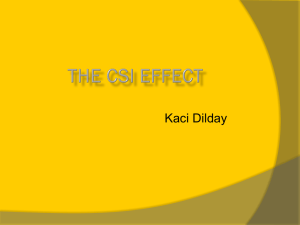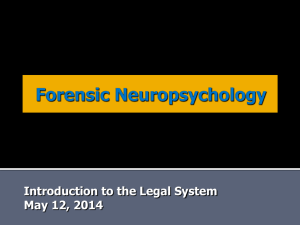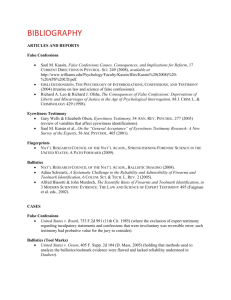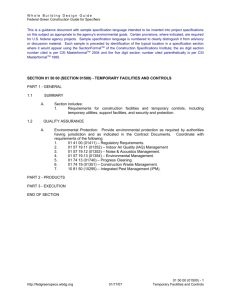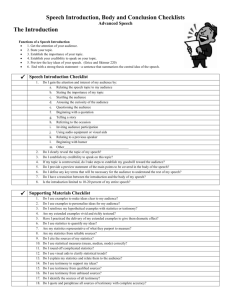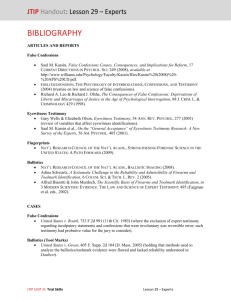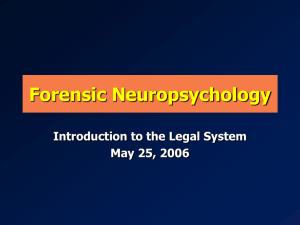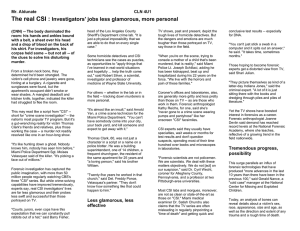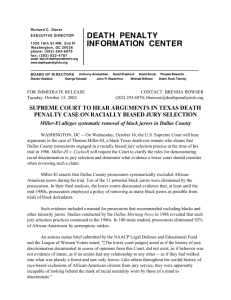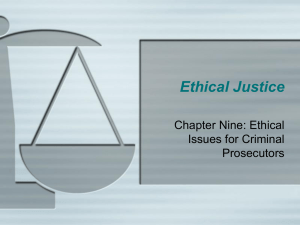Duke Lacrosse Team Case 2007
advertisement
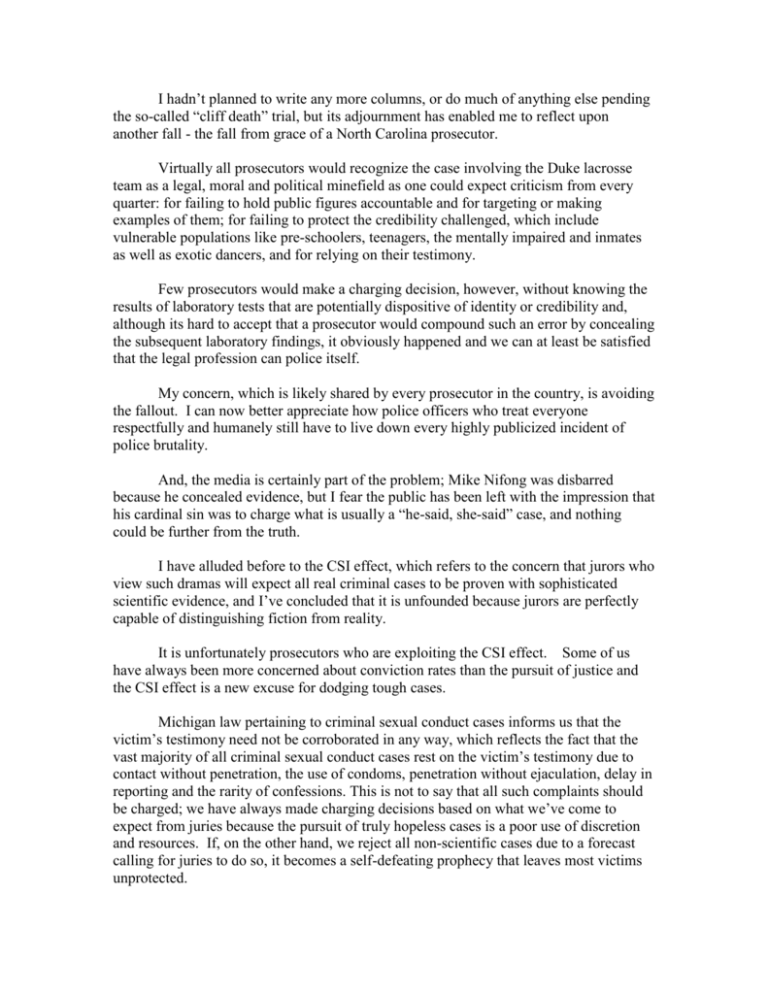
I hadn’t planned to write any more columns, or do much of anything else pending the so-called “cliff death” trial, but its adjournment has enabled me to reflect upon another fall - the fall from grace of a North Carolina prosecutor. Virtually all prosecutors would recognize the case involving the Duke lacrosse team as a legal, moral and political minefield as one could expect criticism from every quarter: for failing to hold public figures accountable and for targeting or making examples of them; for failing to protect the credibility challenged, which include vulnerable populations like pre-schoolers, teenagers, the mentally impaired and inmates as well as exotic dancers, and for relying on their testimony. Few prosecutors would make a charging decision, however, without knowing the results of laboratory tests that are potentially dispositive of identity or credibility and, although its hard to accept that a prosecutor would compound such an error by concealing the subsequent laboratory findings, it obviously happened and we can at least be satisfied that the legal profession can police itself. My concern, which is likely shared by every prosecutor in the country, is avoiding the fallout. I can now better appreciate how police officers who treat everyone respectfully and humanely still have to live down every highly publicized incident of police brutality. And, the media is certainly part of the problem; Mike Nifong was disbarred because he concealed evidence, but I fear the public has been left with the impression that his cardinal sin was to charge what is usually a “he-said, she-said” case, and nothing could be further from the truth. I have alluded before to the CSI effect, which refers to the concern that jurors who view such dramas will expect all real criminal cases to be proven with sophisticated scientific evidence, and I’ve concluded that it is unfounded because jurors are perfectly capable of distinguishing fiction from reality. It is unfortunately prosecutors who are exploiting the CSI effect. Some of us have always been more concerned about conviction rates than the pursuit of justice and the CSI effect is a new excuse for dodging tough cases. Michigan law pertaining to criminal sexual conduct cases informs us that the victim’s testimony need not be corroborated in any way, which reflects the fact that the vast majority of all criminal sexual conduct cases rest on the victim’s testimony due to contact without penetration, the use of condoms, penetration without ejaculation, delay in reporting and the rarity of confessions. This is not to say that all such complaints should be charged; we have always made charging decisions based on what we’ve come to expect from juries because the pursuit of truly hopeless cases is a poor use of discretion and resources. If, on the other hand, we reject all non-scientific cases due to a forecast calling for juries to do so, it becomes a self-defeating prophecy that leaves most victims unprotected. In other types of cases criminals, who also watch CSI, are constantly devising ways to avoid detection and commit the perfect crime, which often means that crimes are orchestrated so as to look like something else – the shooting staged to look like a hunting accident, for example. So, we continue to be tasked with cases that can only be proven the old-fashioned way, with the testimony of our fellow citizens, yet some of us will use the drama in North Carolina as further excuse to charge only those precious few cases supported by DNA, fingerprints, surveillance video and recorded confessions.
